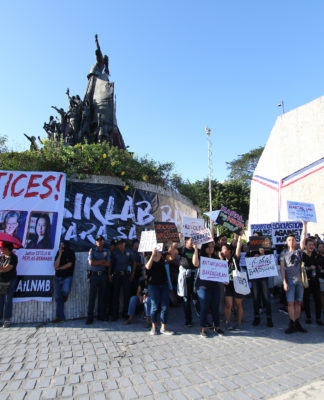 LET ME not face a time where there will be no doctor who can cure, no mentor who can teach, no engineer who can build, and so on and so forth.
LET ME not face a time where there will be no doctor who can cure, no mentor who can teach, no engineer who can build, and so on and so forth.
Last November, the National Statistics Coordination Board (NCSB) released a report that disclosed the decline of the Philippine educational system from 1990 to 2005.
With its 2007 report on the Millennium Development Goals (MGDs), the benchmark set by the United Nations (UN) to reduce poverty and promote development, the NCSB reported that the country complied “badly in achieving universal primary education,” which covers the basic academic requirements–reading, writing, and mathematics skills–as well as mastery of the rudiments of history, geography, natural and social sciences, art, and music. The MGDs serve as the bull’s-eye of 190 UN states, targeting a 2015 deadline to achieve full national literacy rate and alleviation from poverty among countries.
The reported noted an alarming decline in the net enrolment ratio (ratio of the number of students of official school age who are enrolled in primary schools to the total population of children of official school age) in primary education from 99.1 percent in 1990 to 84.4 percent in 2005. What has caused such a drastic decline?
The NCSB points to the low investment in education by the government, which allots only an average of 3.3 percent of the country’s growth domestic product per year to education.
If less and less children can be accommodated to basic education, it seems less and less high school graduates can make it to college because of spiraling tuition costs.
This academic year, the University imposed a five percent increase in tuition, which officials said was “just” in the light of inflation and other economic realities.
But while it is understandable that educational costs are driven by the economy, still there should be regard for the financial capability of students and their respect for education.
Looking at my registration form for the first semester, I realized that after three years, my UST tuition has bloated with a P9,000 increase. This made me think, “How about the next batch and the batch after it?”
The Commission on Higher Education has somehow imposed the “safeguard” of student consultations before private colleges and universities could impose raise in tuition, but this does not ensure that the students would be protected.
Consultation is inutile if students are not empowered to say “no.” I earnestly hope that morality will still be a concern, and not that everything will be reduced to what is only legal. By some means, the latter drills into my mind a negative imprint that for as long as no law is violated, everything can go unreservedly.
If academic institutions would only be “just,” acclimatizing to the economic realities of the country but without doing anything to change them, sooner or later the country would have to bid goodbye to professionals.
This is where quality education must come in.













